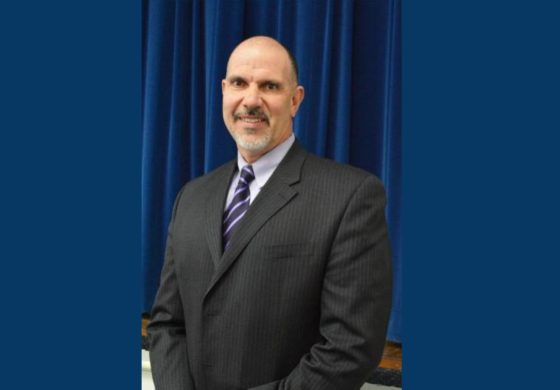May request an additional $1.3 million
By Ruthann Carr
Correspondent
Superintendent Chuck Winkler presented to the School Board Wednesday (Feb. 6) his budget proposal, in which he’s asking for close to $1.3 million more from the county.
It was the board’s first look at it. Members will approve a budget in their Feb. 13 meeting.
About $250,000 of the request is reimbursement for unrealized energy savings promised by Trane, who upgraded lighting, heating and cooling in 2017.
Close to $1 million would go to staff in the form of step increases and raises, guaranteeing a minimum of a 3 percent raise to all.
The increase breaks down as follows:
- Baseline fiscal year 2019 (FY19) local funding adopted by Board of Supervisors in April 2018 = $17,427,579
- Unrealized energy savings = $224,700
- Adjusted baseline for FY20 = $17,652,279
Request components:
- Staff raises and step increases, minimum of 3 percent = $890,000
- Increase in instructional staff: high school English, high school physical education/elective, school counselor, middle school career and technical education, high school special education = $370,000
- Technology = $600,000
- Other: Increase substitute pay, field hockey, homebound teacher = $80,000
Offsets:
- Increased projected state funding = $1,137,089
- Decrease in projected other local revenue = $248,708
Total:
- $1,051,619 plus unrealized energy savings of $224,700 = $1,276,319 in total additional local funding needed.
The total proposed school budget is $42,697,633, up 5 percent from last year, while the total local request is $18,703,898, up 7 percent.
Board Chair Perrie Johnson (Fork Union) asked Winkler why he started with last year’s budget as a baseline rather than going through the budget line-by-line and making cuts suggested by the board.
“I don’t see any reduction in our budget like we suggested” at the seminar, she said. “Instead, you started with the baseline. The things we talked about in the last seminar, how much did we save?”
Winkler said the cuts didn’t amount to enough to make a real difference.
“It wasn’t $100,000,” he said. “I’ve looked at the budget. There’s not a lot of gold and diamonds in this.”
A Fluvanna Reviewstory on the seminar said this: “The board generally approved Winkler’s recommendations with a few nips and tucks, trimming $40,000 from one line item and $30,000 from another, and deferring some issues until a later date.”
Johnson said she remembered that at the seminar the board “came up with a big long list” that included some positions.
Winkler said there are a couple positions they might be able to do without, but those are standards of quality (SOQ) positions. Raises to SOQ positions are covered by the governor’s proposed budget.
If they cut those positions, it would cut down on the state funding the school receives.
Johnson said she wanted to make clear she is “interested in reallocating resources, not asking for more money.”
Johnson passed out a sheet of paper containing a copy of Scale B and the step raises teachers on that scale receive.
“Fluvanna’s school efficiency review states, ‘Best practices in education compensation suggest front-loading the teacher salary schedules so as to reward early career gains to teacher effectiveness and to provide financial rewards to the teachers most likely to leave the profession,’” she said. “Our proposed teachers’ scale B grows very slowly for the first two-thirds of the schedule (20 years) for a total of $7,020. This compares to much more rapid growth over the last third (only 10 years) with a total of $12,360.”
A lengthy discussion followed about the cost of loading raises on the front end of a career, and the relative merits and disadvantages of pay bands, scales and steps.
Johnson said the reality is getting raises earlier in a career boosts lifetime earnings.
Shirley Stewart (Rivanna) said she understood Johnson’s point, but, “The reality of the resources Fluvanna County has is the more money we give to teachers, the less we have for other things.”





